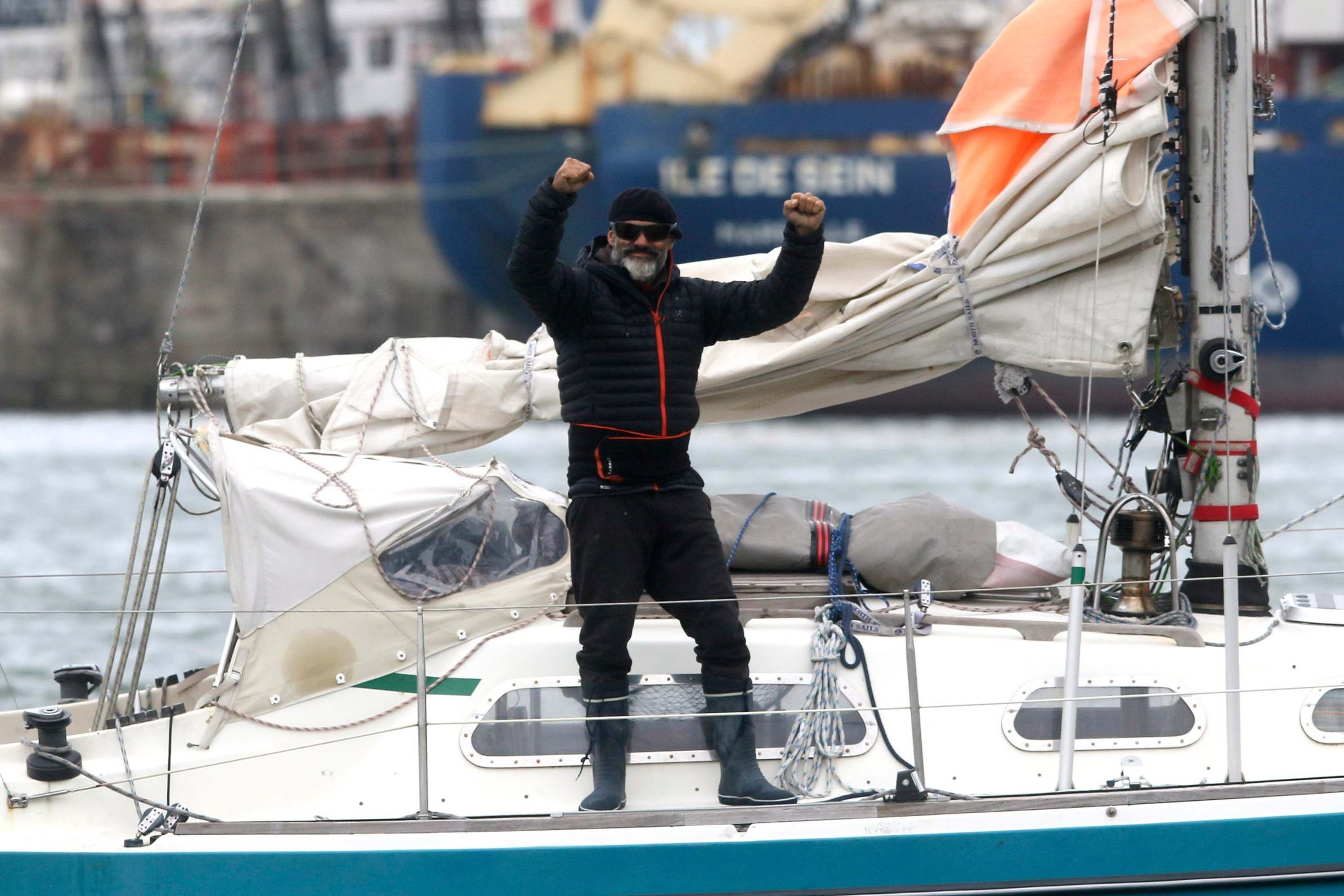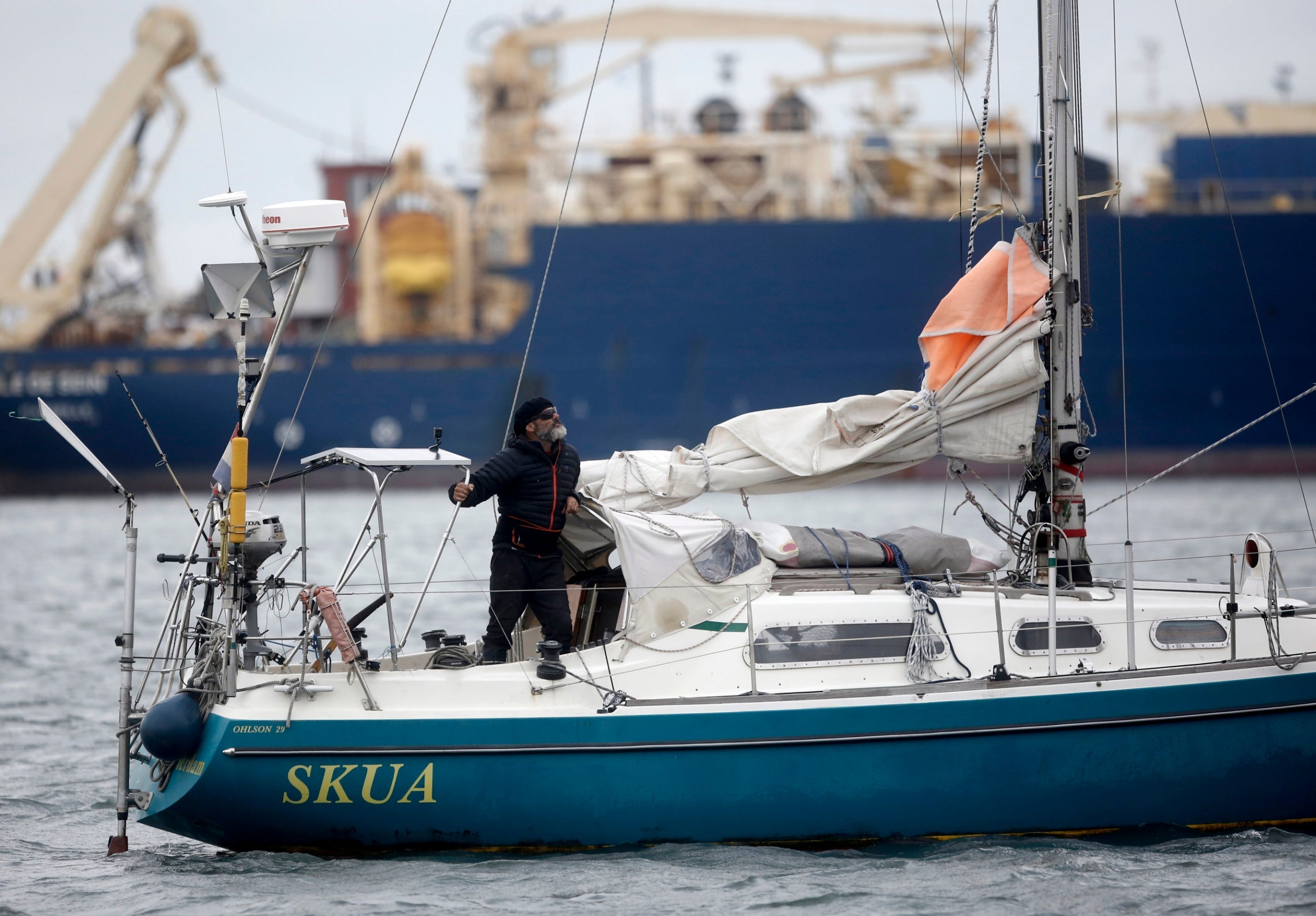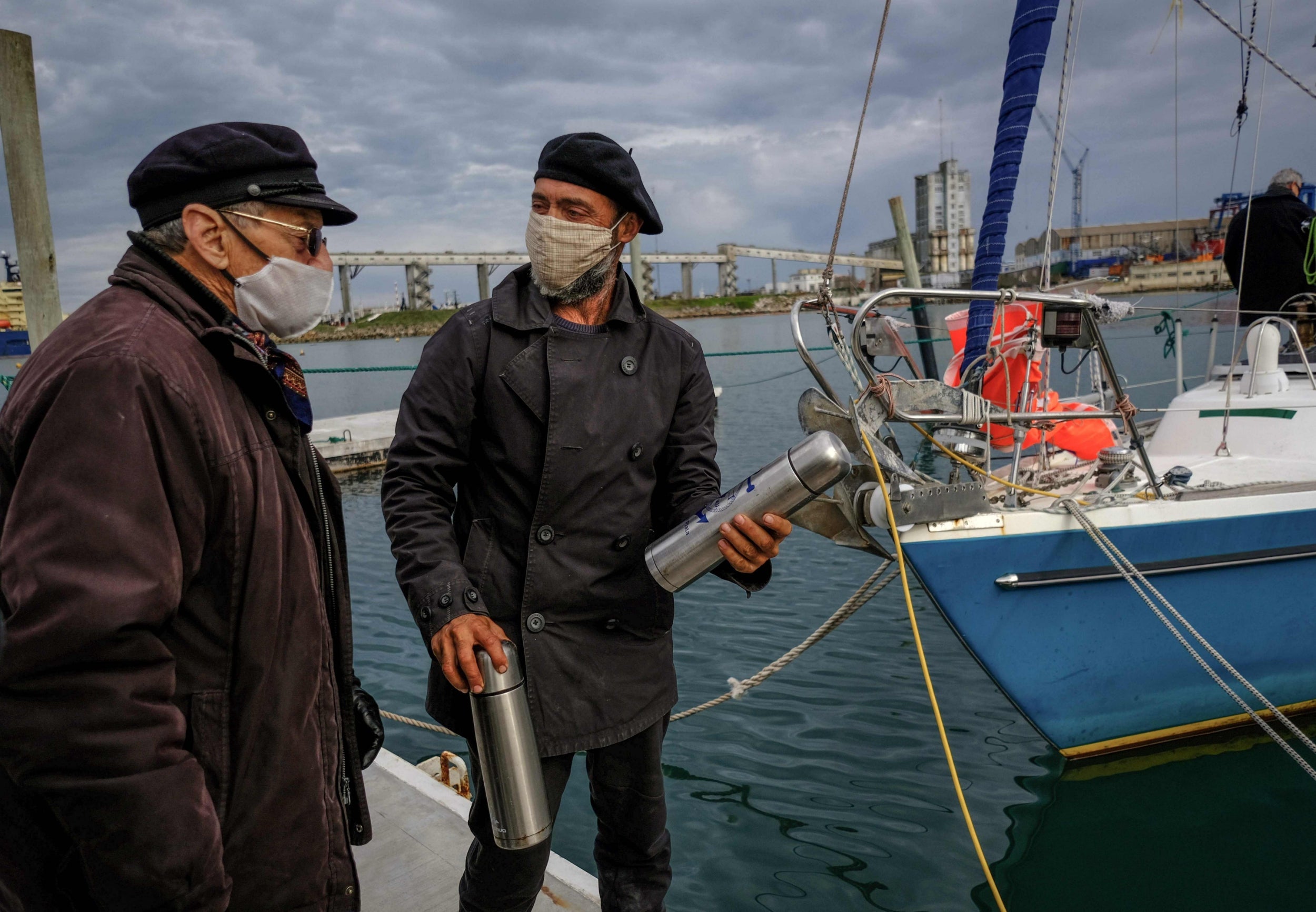‘I wanted to do everything possible’: The son who sailed solo across the Atlantic to his father
With flights cancelled at the outbreak of coronavirus, Juan Manuel Ballestero decided he had to get home to Argentina from Portugal and so set sail alone, writes Daniel Politi

Your support helps us to tell the story
From reproductive rights to climate change to Big Tech, The Independent is on the ground when the story is developing. Whether it's investigating the financials of Elon Musk's pro-Trump PAC or producing our latest documentary, 'The A Word', which shines a light on the American women fighting for reproductive rights, we know how important it is to parse out the facts from the messaging.
At such a critical moment in US history, we need reporters on the ground. Your donation allows us to keep sending journalists to speak to both sides of the story.
The Independent is trusted by Americans across the entire political spectrum. And unlike many other quality news outlets, we choose not to lock Americans out of our reporting and analysis with paywalls. We believe quality journalism should be available to everyone, paid for by those who can afford it.
Your support makes all the difference.Days after Argentina cancelled all international passenger flights to shield the country from the new coronavirus, Juan Manuel Ballestero began his journey home the only way possible: he stepped aboard his small sailboat for what turned out to be an 85-day odyssey across the Atlantic.
The 47-year-old sailor could have stayed put on the tiny Portuguese island of Porto Santo, to ride out the era of lockdowns and social distancing in a scenic place largely spared by the virus. But the idea of spending what he thought could be “the end of the world” away from his family, especially his father who was soon to turn 90, was unbearable.
So he said he loaded his 29-foot sailboat with canned tuna, fruit and rice and set sail in mid-March.
“I didn’t want to stay like a coward on an island where there were no cases,” Ballestero says. “I wanted to do everything possible to return home. The most important thing for me was to be with my family.”
The coronavirus pandemic has upended life in virtually every country, gutting the global economy, exacerbating geopolitical tension and halting most international travel. A particularly painful aspect of this awful era has been the inability of an untold number of people to rush home to help ailing loved ones and attend funerals.
Friends tried to dissuade Ballestero from embarking on the perilous journey, and authorities in Portugal warned him he might not be allowed to re-enter if he ran into trouble and had to turn back. But he was resolute.
“I bought myself a one-way ticket, and there was no going back,” he says.
His relatives, used to Ballestero’s itinerant lifestyle, knew better than to try to talk him out of it.
“The uncertainty of not knowing where he was for 50-some days was very rough,” says his father, Carlos Alberto Ballestero. “But we had no doubt this was going to turn out well.”
Sailing across the Atlantic in a small boat is challenging in the best of circumstances. The added difficulties of doing it during a pandemic became clear three weeks into the trip.
On April 12, authorities in Cape Verde refused to allow him to dock at the island nation to restock his supply of food and fuel, Ballestero says.

Hoping he had enough food to carry him through, he turned his boat west. With less fuel than he hoped for, he would be more at the mercy of the winds.
He was no stranger to spending long stretches of time at sea, but being alone on the open ocean is daunting to even the most experienced sailor.
Days into the journey, he became panicked by the light of a ship that he thought was trailing him and seemed to be approaching closer and closer.
“I started going as fast as possible,” Ballestero says. “I thought, ‘If it gets very close, I’ll shoot.’”
Seafaring is a Ballestero family tradition.
From the time he was three, his father took him aboard the fishing vessels he captained.
The expansiveness of the ocean notwithstanding, Ballestero felt he was in a quarantine of sorts, imprisoned by an unrelenting stream of foreboding thoughts
When he turned 18, he took a job on a fishing boat in southern Argentina. Off the coast of Patagonia, one of the most experienced fishermen aboard gave him a piece of advice that would become a way of life.
“Go see the world,” the fisherman said.
And so he did.
Ballestero has spent much of his life sailing, with stops in Venezuela, Sri Lanka, Bali, Hawaii, Costa Rica, Brazil, Alaska and Spain.
He has tagged sea turtles and whales for conservation organisations and spent summers working as a skipper aboard boats owned by wealthy Europeans.
He bought his sailboat, an Ohlson 29 named the Skua, in 2017, hoping to take it on a loop around the world. It proved up to the task of traversing an ocean on a planet plunged into crisis mode.
“I wasn’t afraid, but I did have a lot of uncertainty,” he says. “It was very strange to sail in the middle of a pandemic with humanity teetering around me.”
Sailing can be a lonely passion, and it was particularly so on this voyage for Ballestero, who each night tuned into the news on a radio for 30 minutes to take stock of how the virus was rippling across the globe.
“I kept thinking about whether this would be my last trip,” he says.

The expansiveness of the ocean notwithstanding, Ballestero felt he was in a quarantine of sorts, imprisoned by an unrelenting stream of foreboding thoughts about what the future held.
“I was locked up in my own freedom,” he recalls.
On a particularly trying day, he turned to a bottle of whiskey for solace. But drinking only increased his anxiety. With his nerves frayed, Ballestero says he found himself praying and resetting his relationship with God
“Faith keeps you standing in these situations,” he says. “I learned about myself; this voyage gave me lots of humility.”
Several weeks into the trip, when his spirits were low, Ballestero says he was buoyed by wildlife sightings that felt like omens.
During that stop, Ballestero learned that his brother had told reporters in Argentina about the voyage, which enthralled people who were bored and cooped up at home
He found solace in a pod of dolphins that swam alongside his boat, on and off, for some 2,000 miles.
“They would go and come back,” he says. “And one day, they seemed to say goodbye.”
During a day when he had drunk heavily, he spotted a large bird cruising nearby. It turned out to be a skua, the bird his boat is named after.
“It was as if the bird was telling me not to give up, to keep going,” he says.
One day, when he tired of canned food, Ballestero got a fishing rod and scanned a school of mahi-mahi. But he had a sudden reluctance to cast out a line.
“I didn’t want to kill one. It felt like killing a person,” he says. “I used to be a fisherman, but after that experience it’s hard for me to kill now.”
View this post on InstagramMisión cumplida! La fe cruza oceanos
A post shared by Juan Manuel Ballestero (@skuanavega) on
He went back to eating canned tuna.
When he was approaching the Americas, a brutal wave rattled the boat some 150 miles from Vitoria, Brazil, he says. That episode forced him to make an unplanned pit stop in Vitoria, adding about 10 days to a trip he had expected to take 75 days.
During that stop, Ballestero learned that his brother had told reporters in Argentina about the voyage, which enthralled people who were bored and cooped up at home. At the urging of friends, he created an Instagram account to document the final leg of the trip.
When he made it to his native Mar del Plata, on June 17, he was startled by the hero’s welcome he received.
“Entering my port where my father had his sailboat, where he taught me so many things and where I learned how to sail and where all this originated, gave me the taste of a mission accomplished,” he says.
A medical professional administered a test for Covid-19 on the dock. Within 72 hours, after the test came back negative, he was allowed to set foot on Argentine soil.
While he did not get to celebrate his father’s 90th birthday in May, he did make it home in time for Father’s Day.
“What I lived is a dream,” Ballestero says. “But I have a strong desire to keep on sailing.”
© The New York Times
Join our commenting forum
Join thought-provoking conversations, follow other Independent readers and see their replies
Comments